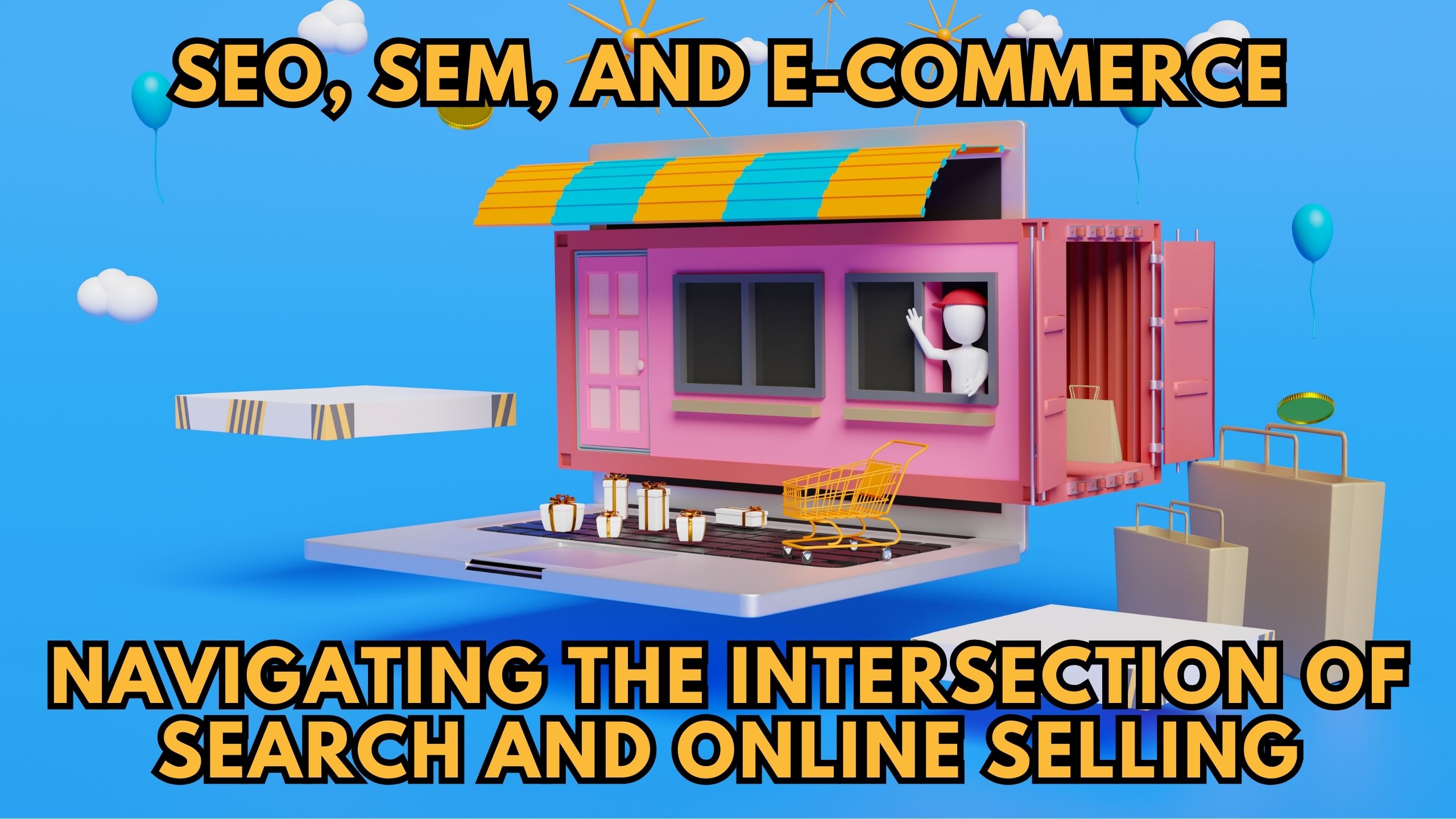SEO, SEM, and E-commerce: Navigating the Intersection of Search and Online Selling
- Expense Management Software Credit Cards Investing Business Solutions


SEO, SEM, and E-commerce: Navigating the Intersection of Search and Online Selling
In the dynamic landscape of online business, the convergence of SEO (Search Engine Optimization), SEM (Search Engine Marketing), and E-commerce plays a pivotal role in driving success. This blog aims to thoroughly explore the symbiotic relationship between these elements, shedding light on their individual significance and how they intersect to create a powerful online presence.
1. SEO Strategies for E-commerce Success
Effective SEO is crucial for E-commerce platforms striving to enhance their online visibility. Platforms like Moz provide comprehensive SEO tools, aiding businesses in optimizing their websites, conducting keyword research, and monitoring search performance. Moz’s suite of features empowers E-commerce businesses to stay ahead in the competitive online market by implementing data-driven SEO strategies.
2. SEM: Boosting Visibility and Clicks
Search Engine Marketing (SEM) complements SEO by offering immediate visibility through paid advertising. Google Ads stands out as a leading SEM platform, allowing businesses to create targeted ads that appear on search engine result pages. For E-commerce, Google Ads is instrumental in driving traffic, increasing clicks, and ensuring products reach a wider audience through strategic paid campaigns.
3. E-commerce Platforms: Shopify
E-commerce platforms are the foundation for online stores, and Shopify is a prime example. With its user-friendly interface and extensive features, Shopify facilitates the creation and management of E-commerce websites. Its flexibility and scalability make it a preferred choice for businesses looking to establish a robust online presence, seamlessly integrating with SEO and SEM strategies.
4. Analytics with Google Analytics
For a holistic approach to understanding website performance, Google Analytics is indispensable. It provides insights into user behavior, traffic sources, and conversion data. E-commerce businesses can leverage these analytics to refine their SEO and SEM strategies, ensuring a data-driven approach to decision-making and continuous improvement.
5. Content Optimization with Yoast SEO
Content plays a pivotal role in both SEO and E-commerce success. Yoast SEO is a WordPress plugin that aids in optimizing content for search engines. It assists E-commerce businesses in crafting SEO-friendly product descriptions, blog posts, and other content, contributing to enhanced online visibility and organic traffic.
Conclusion: Crafting a Synergistic Approach
In conclusion, the intersection of SEO, SEM, and E-commerce is where online success thrives. Businesses must recognize the interdependence of these strategies and leverage tools like Moz, Google Ads, Shopify, Google Analytics, and Yoast SEO to create a synergistic approach for a thriving online presence.
Unlock the Power of Synergy with Subscribed.fyi
Maximize the synergy of SEO, SEM, and E-commerce with Subscribed.fyi, the ultimate solution for managing your SaaS stack. Sign up today to unlock exclusive deals, streamline subscription management, and gain insights that propel your online strategies to new heights.
Relevant Links:








